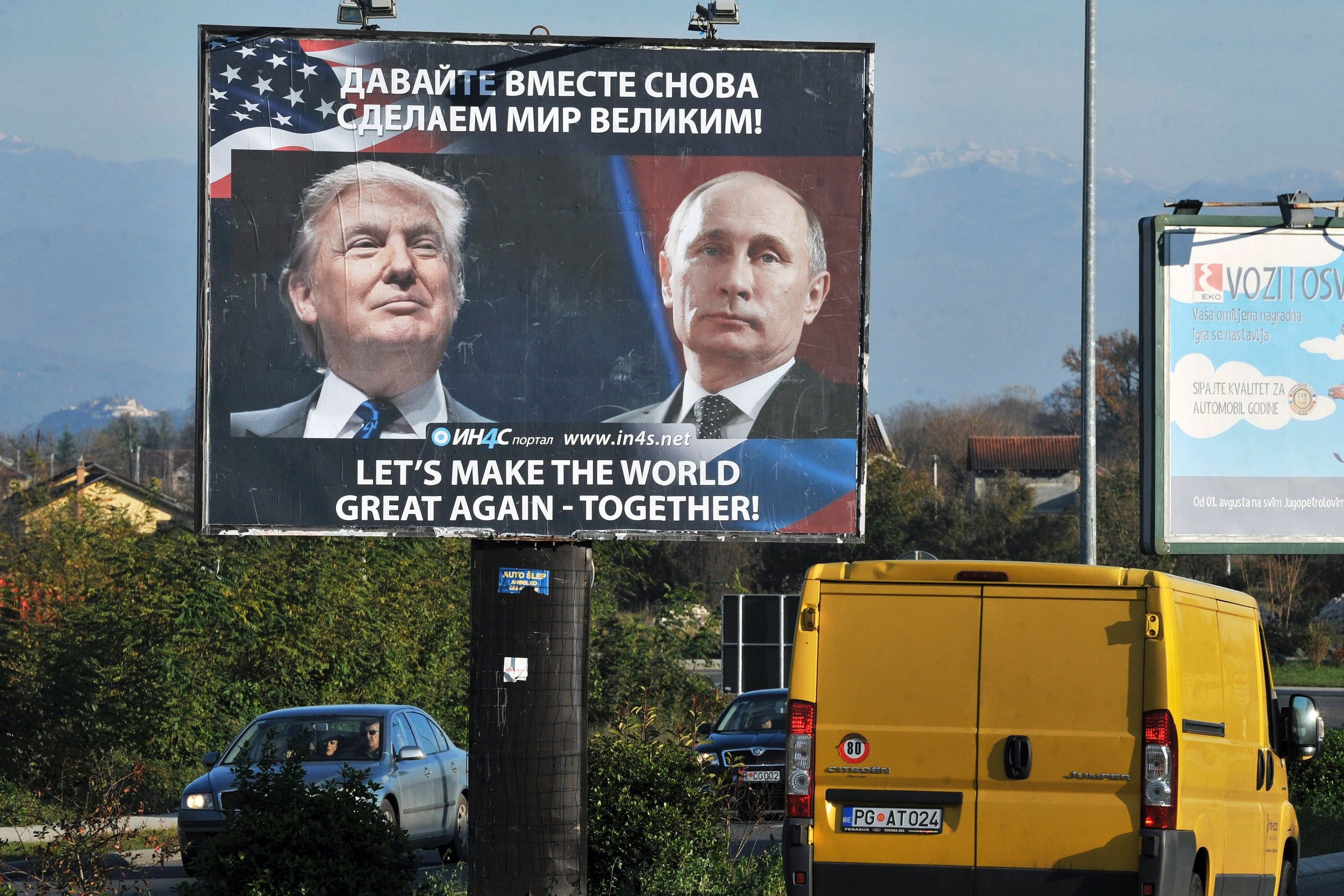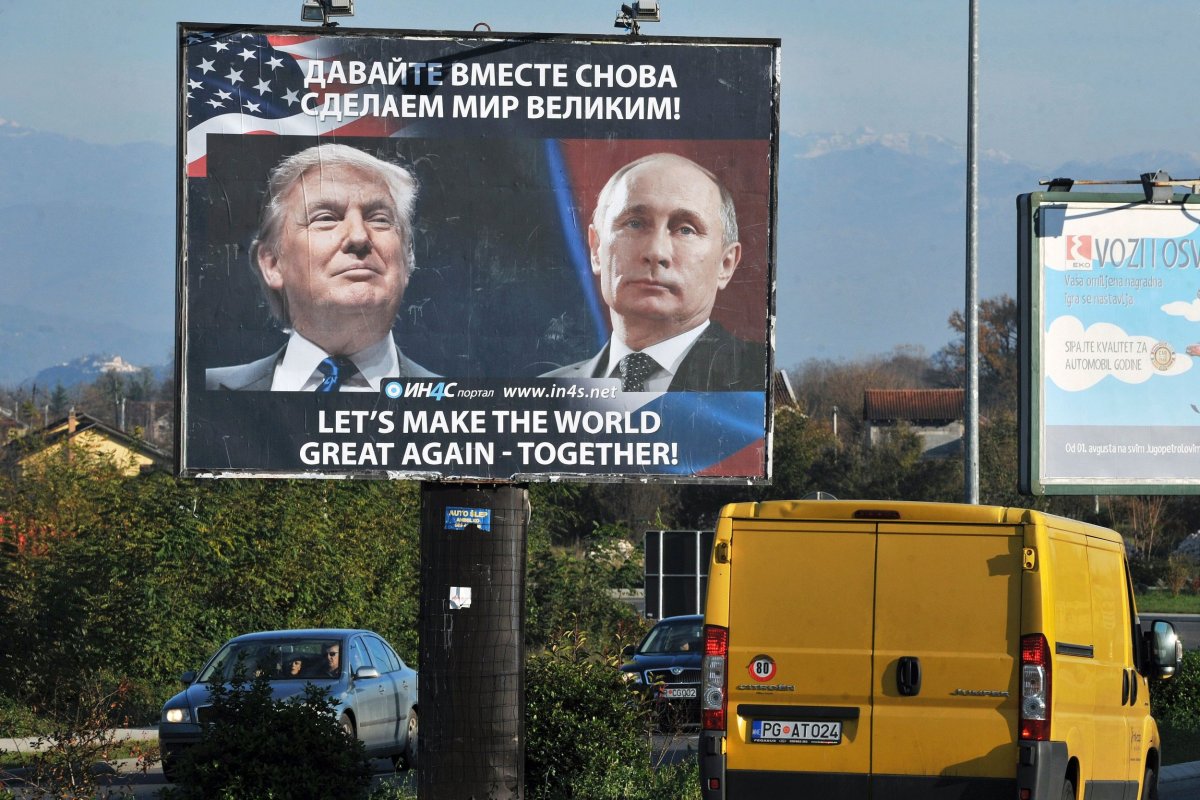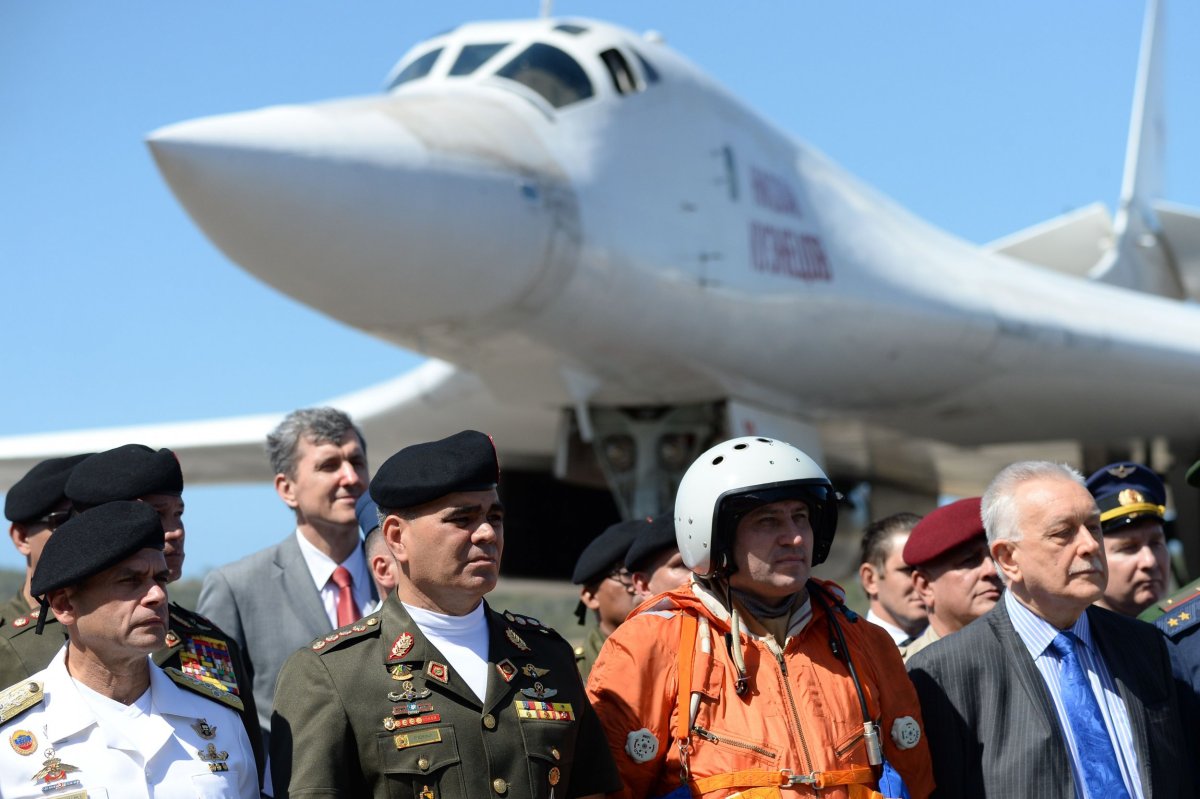
On Friday, President Donald Trump spoke with Russian President Vladimir Putin by phone for about an hour, covering a range of topics at a time of heightened tensions between the two nations.
White House press secretary Sarah Sanders described the call as "very positive." Trump himself later called it a "long and very good conversation" as the two "discussed Trade, Venezuela, Ukraine, North Korea, Nuclear Arms Control and even the "Russian Hoax"—a reference to the long-standing investigation into yet unproven allegations that he colluded with Russia to secure the 2016 election.
The president was of the opinion that "long before the Witch Hunt started, getting along with Russia, China, and everyone is a good thing, not a bad thing."
The conversation came amid Washington and Moscow diverging on the ongoing political feud in Venezuela between Russia-backed President Nicolás Maduro and U.S.-endorsed opposition leader Juan Guaidó. The two nations have also struggled to find common ground on arms-control agreements. While both sought to peacefully disarm North Korea, Trump and Putin oftentimes found themselves on opposite ends of some of the world's most pressing geopolitical issues.

In a readout provided after Friday's call, the Kremlin said the heads of state "expressed satisfaction with the conversation, which was businesslike and constructive." During the talk, common views were reached on North Korea and the need to intensify "dialogue in various fields, including on issues of strategic stability," but on Venezuela, Putin warned that "attempts to change power in Caracas by force undermine the prospects for a political settlement of the crisis."
Trump was considered a potential political ally to Putin when the Republican leader entered office in early 2017 and the two men promised to reset the relationship between U.S. and Russia.
More than two years later, that goal appears far from within reach. General Valery Gerasimov, Moscow's chief of the general staff, argued last week that relations between Russia and the U.S. were "at the lowest level in history" at an international security conference boycotted by Washington officials.
The U.S. continued to provide assistance to Ukraine in its battle against Eastern separatists allegedly backed by Russia and has refused to endorse the leadership of Syrian President Bashar al-Assad, whom Washington accused of war crimes and attempted to overthrow via support for an insurgency largely quashed with the help of Moscow. The latest front opened January in Venezuela, with the Trump administration recognizing Guaidó's claim to Maduro's position, thereby threatening one of Putin's closest ties in Latin America.
When Guaidó failed to oust Maduro following Tuesday's attempted uprising, Secretary of State Mike Pompeo claimed that the Venezuelan president "was ready to leave this morning, as we understand, and the Russians indicated he should stay." He joined White House national security adviser John Bolton in reminding that "all options," including military action, were possible.

A month earlier, Russia delivered a political message to the U.S. by sending nuclear-capable bombers to conduct joint drills with Venezuela over the Caribbean, the scene of Moscow and Washington's last major Western Hemisphere standoff during the Cuban missle crisis of 1962. More than half a century later, the medium-range weapons that sparked that incident may once again appear in the arsenal of the world's two top military powers, as the White House walked away from the 1987 Intermediate-range Nuclear Forces (INF) treaty.
As Pompeo and Bolton hyped up the threat of war, however, Trump attempted to assuage fears that Moscow was involved in what was happening in Caracas. The Republican leader reportedly told reporters that Putin was "not looking at all to get involved in Venezuela, other than he'd like to see something positive happen."
Trump and Putin have continued to display hopes for a degree of détente on other issues. Following Putin's meeting with North Korean leader Kim Jong Un, with whom Trump has attempted to forge denuclearization, Trump said "we all"—Russia and China included—have to "get rid of" nuclear weapons.
The remarks were welcomed by Russian Deputy Foreign Minister Sergei Ryabkov, who laid out a potential framework toward new nonproliferation efforts and called on the U.S. to sign an agreement that would forego the use of nuclear weapons in a future conflict.
Uncommon Knowledge
Newsweek is committed to challenging conventional wisdom and finding connections in the search for common ground.
Newsweek is committed to challenging conventional wisdom and finding connections in the search for common ground.
About the writer
Based in his hometown of Staten Island, New York City, Tom O'Connor is an award-winning Senior Writer of Foreign Policy ... Read more
To read how Newsweek uses AI as a newsroom tool, Click here.








